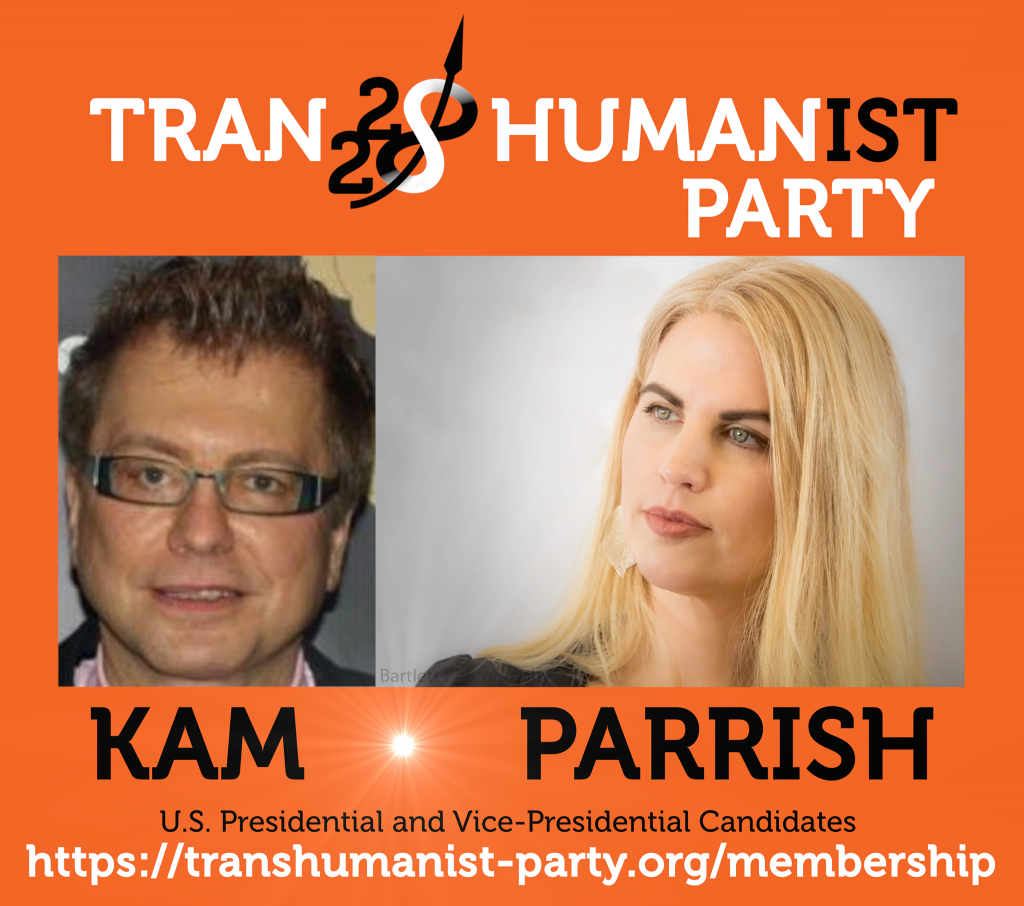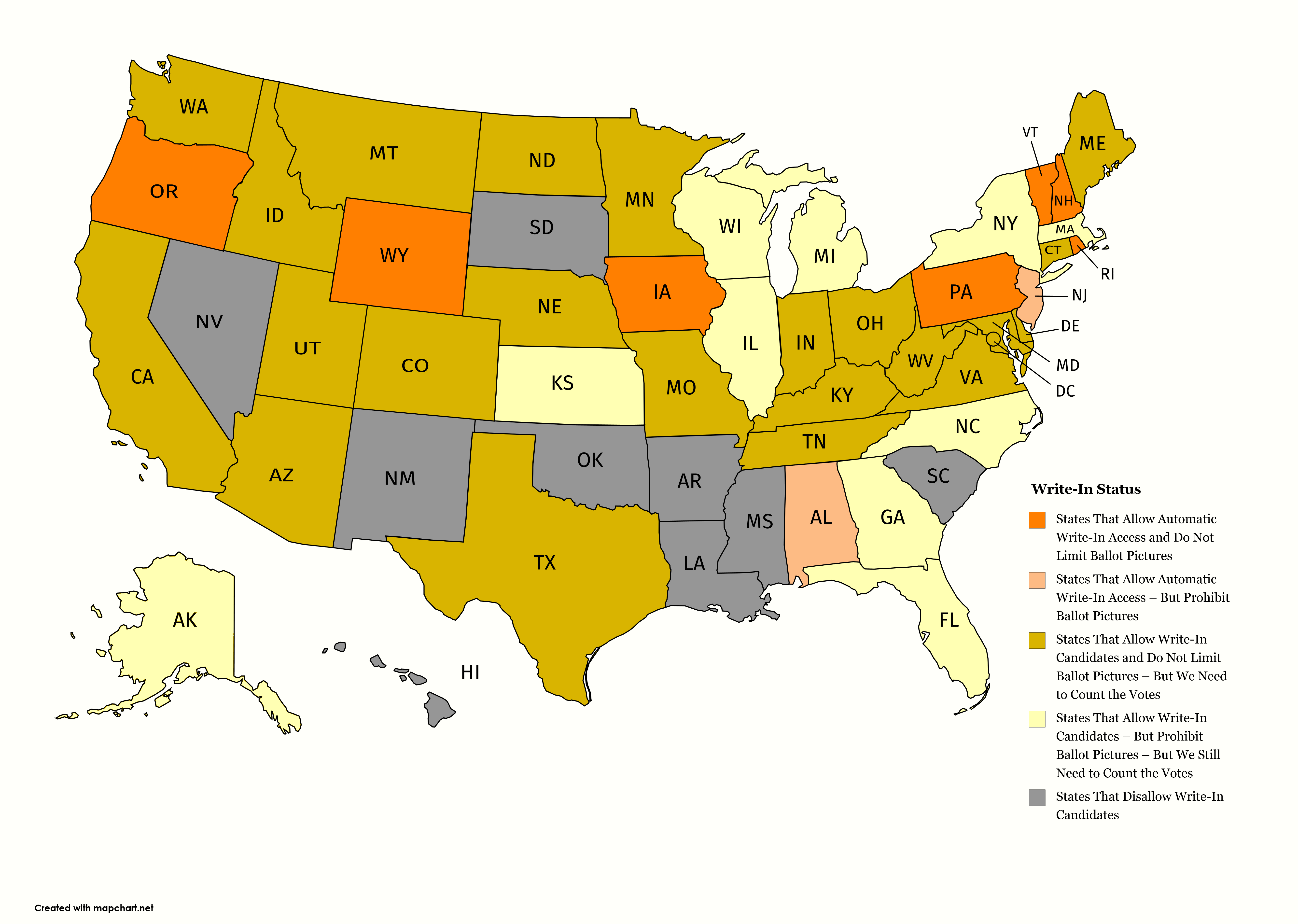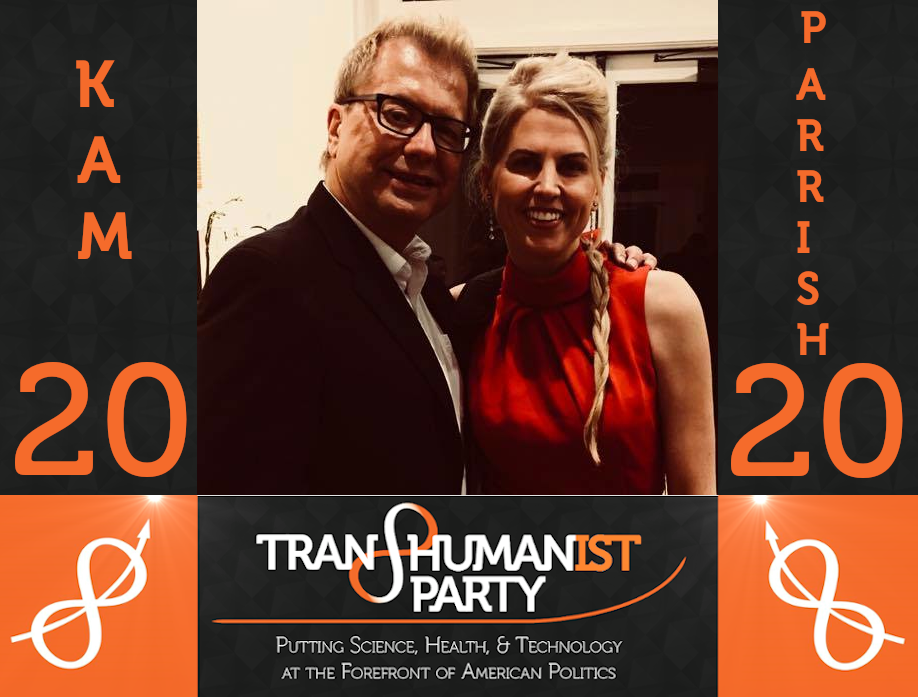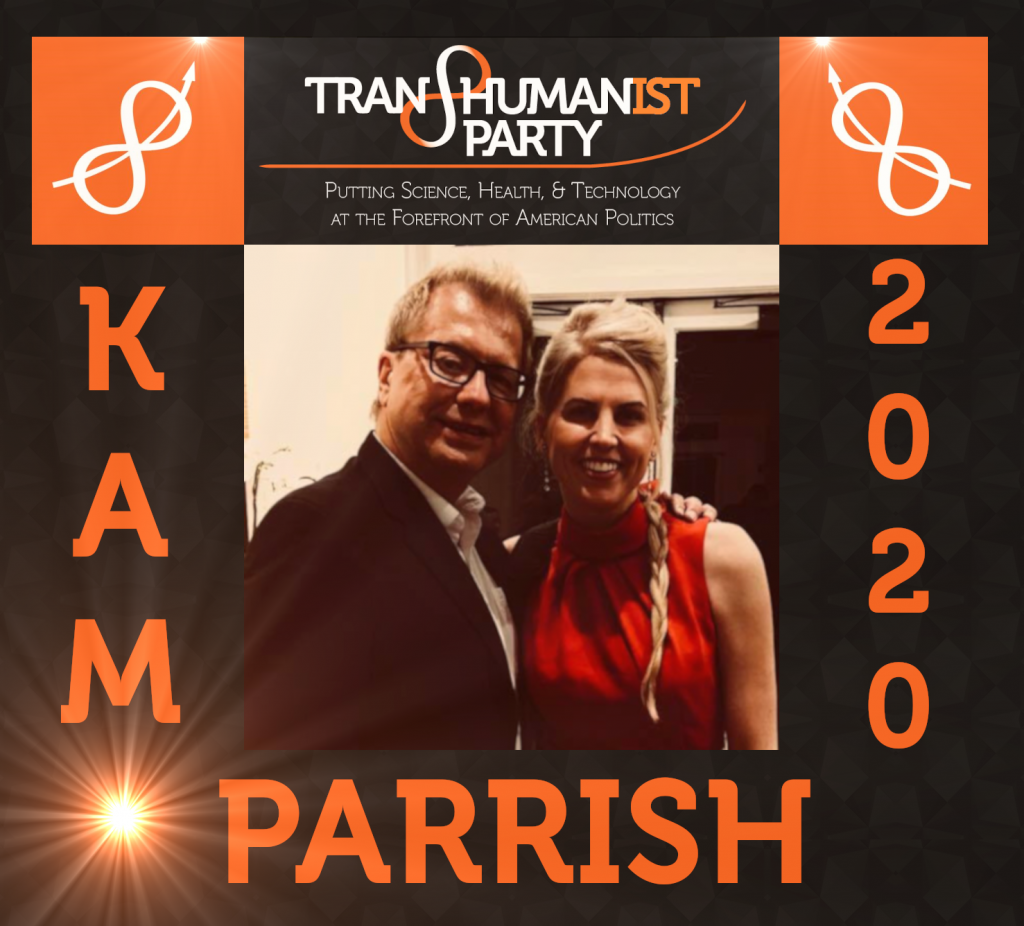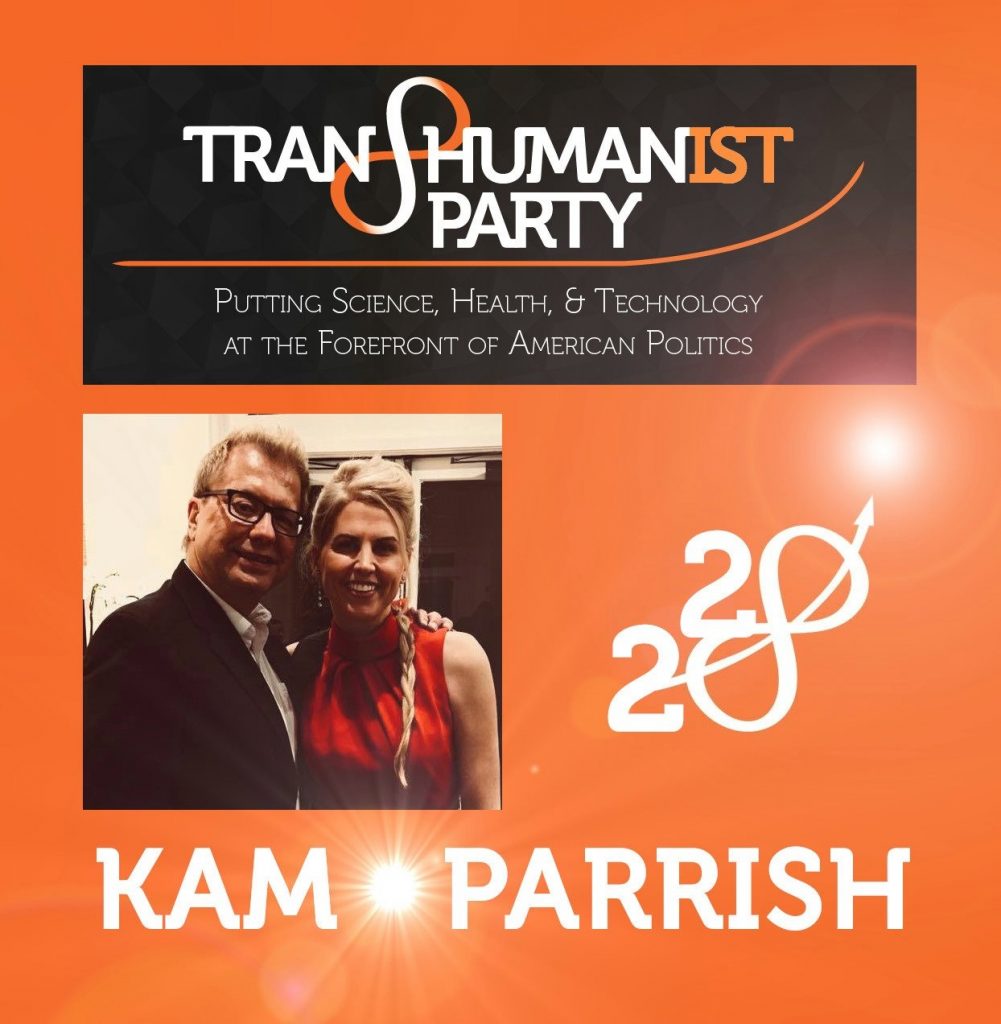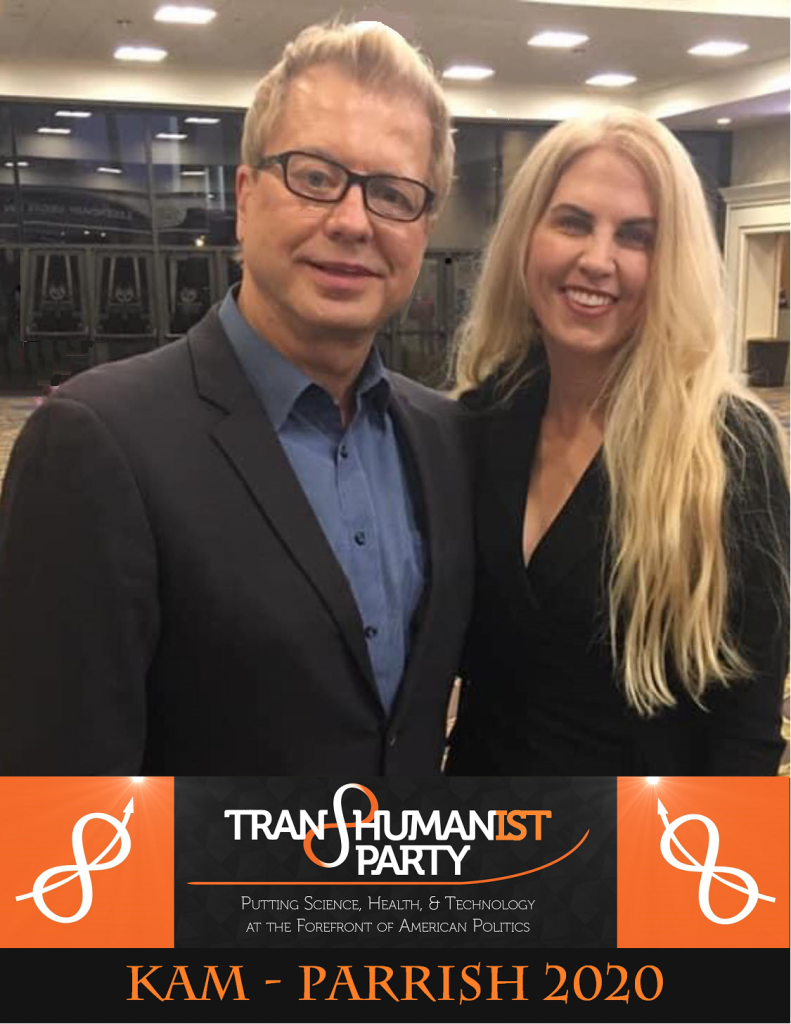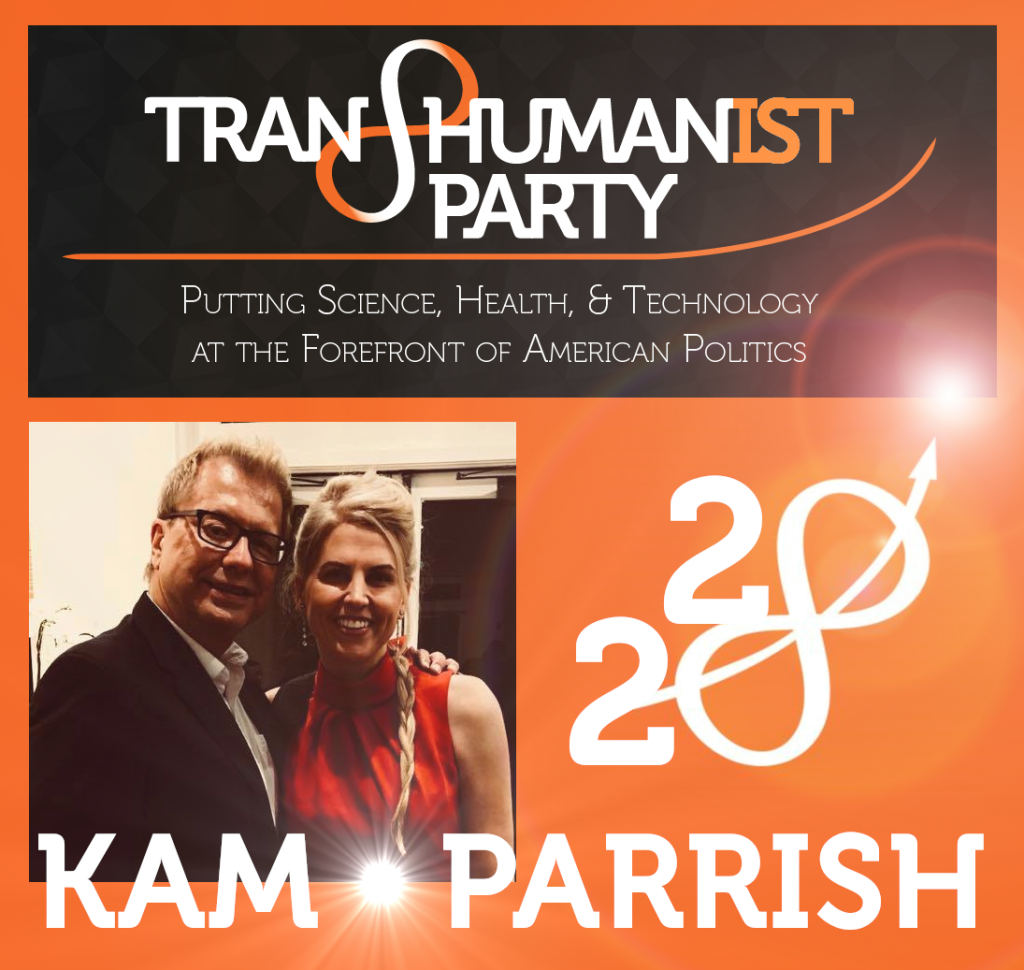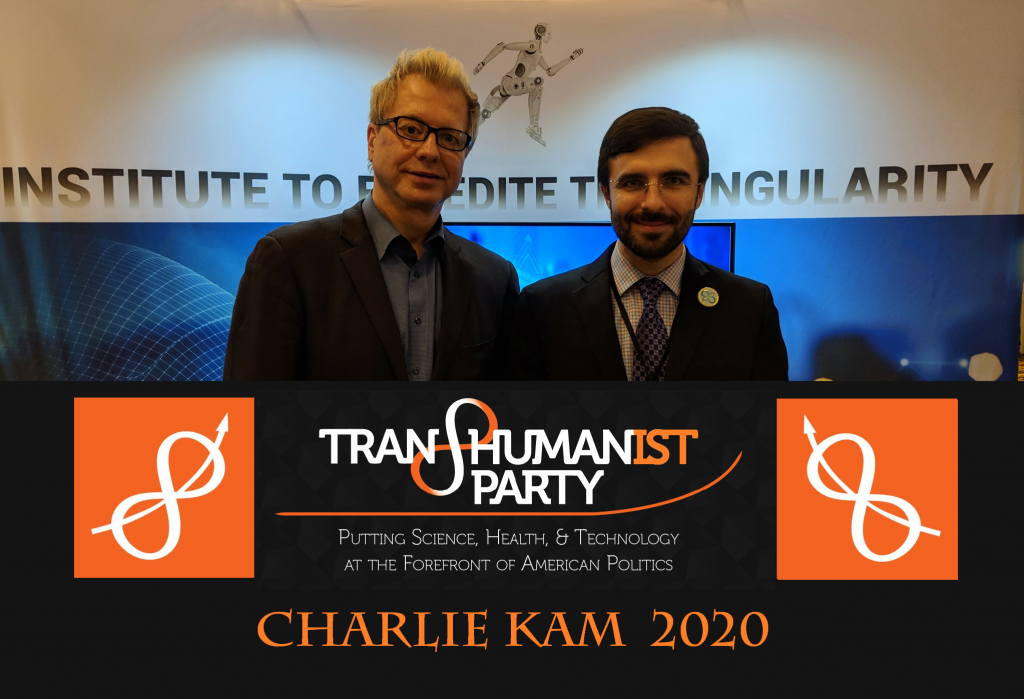U.S. Transhumanist Party Chairman’s Fourth Anniversary Message

Gennady Stolyarov II

The fourth year of my Chairmanship of the U.S. Transhumanist Party has been a test of leadership unlike any I expected to face. Working to advance a small but determined transpartisan organization during a deadly global pandemic and a time of unprecedented (for the modern era) political division and toxicity is not an undertaking for the faint of heart. Indeed, the worst is still not behind us, despite science and technology again coming to the rescue with the rapid development of safe, effective vaccines for COVID-19 in a timeframe unmatched in all of human history by its rapidity. This is clearly an achievement for contemporary biomedical research, and it illustrates again the aspects of human endeavor that will hopefully extricate ourselves from humankind’s dire crisis within a few months’ time. Other aspects of this crisis – the immense and utterly counterproductive societal rifts that it has created, the economic and psychological strain it has imposed upon people, the material disruptions to our civilization that will take heroic efforts to mend – may be longer-lasting. The tension of these influences has made crafting this Chairman’s Message my most difficult effort by far compared to prior years – as it was necessary to both acknowledge the dire predicament that humankind is currently mired in, and to outline possible ways out through our direct actions. However, I hope that this message, which I began to write on November 17, 2020, the actual four-year anniversary of my selection as USTP Chairman, will clearly outline the various dimensions of my thinking regarding the present situation and future prospects.
This pandemic fortified my confidence in science and technology while greatly diminishing it with regard to contemporary human societies and American society especially. As I explained in my presentation at the Vanguard Scientific Instruments in Management (VSIM) 2020 virtual conference on July 29, 2020 (video recording forthcoming), the great crisis of 2020 is essentially manmade. While COVID-19 results from a naturally occurring virus and is highly dangerous, systemic human failures transformed the pandemic into a major worldwide crisis. These human failures exposed the severe vulnerabilities in contemporary societies against relatively simple threats. Societies have turned inward, degenerating into tribal, factional conflict, instead of fighting the common enemies of death and disease. Science has become politicized in a deleterious, tribal way, and the politicized versions have anything but the hallmarks of true science – traits such as openness to empirical evidence, systematic testing of hypotheses, willingness to acknowledge evidence that challenges a prior hypothesis and to refine one’s hypotheses accordingly. Neither the “red tribe” nor the “blue tribe” are logically consistent or open to evidence, instead choosing to cherry-pick tidbits from science that happen to support their preconceived agendas. Because of American influence throughout the globe, the entire world suffers from American political toxicity. Worse, the material and psychological stresses of the pandemic are pushing some people over the brink into destructive madness. Mainstream propaganda with ulterior motives amplifies this tendency, prompting unstable personalities toward violence. Although the scientific means to overcome this pandemic are already here with us, persistent cultural, attitudinal, and institutional failures may lead to delayed application of the remedies and thus the needless deaths of tens of thousands more Americans – and certainly the needless suffering of millions.
It is no surprise that, given the pervasiveness of American societal failure in 2020, aspects of the toxic tendencies involved attempted to seep even into the organization which has sought to be a small but bold and high-minded bastion of resistance to these ills. Much time and energy has unfortunately been expended to fend off the destructive behaviors of a small number of detractors who sought, despite my staunch resistance, to import the rancorousness of mainstream politics into the USTP. And yet, in spite of this, while the USTP has needed to pivot and adjust in multiple respects, the creative output of this organization has been phenomenal despite an environment of ubiquitous world crisis. My initial – rather unrealized – strategic inclination in the midst of this pandemic had been to chart a course of careful maintenance of what was and a more relaxed and deliberative pace of activity to enable us all to focus on immediate needs in adjusting to the pandemic. Similarly to how I personally resolved to avoid major life changes while the pandemic raged, my aim for the USTP had been primarily one of preservation – and yet these times require one to keep adjusting. The ultimate result has, notwithstanding my initial inclination, been major acceleration of activity in many areas – often too rapid to even systematically publish updates about. While we have recently exceeded 3,000 members and are still working to integrate all of the members from our merger with the Longevity Party United States in February 2020, we have consistently produced output on a scale worthy of an organization with several orders of magnitude more resources at its disposal. This could not have been done successfully without the dedicated core of Officers, Advisors, and members who have maintained a steadfast commitment to the USTP during these troubled times. These individuals have always greatly outnumbered the troublemakers, and it is for them primarily that the USTP exists and persists no matter what obstacles it faces.
The Virtual Enlightenment Salons, of which we have already held 30 every Sunday since May 2020, have been an immense feat of the U.S. Transhumanist Party, brought about by our Officers’ rapid adaptation to the circumstances of the pandemic and the opportunities created by the consequent higher level of utilization of videoconferencing and streaming technologies. Whereas the logistics for our USTP Primary debates in 2019 were complex and cumbersome, the Virtual Enlightenment Salons are able to be carried out far more reliably and with superior production quality. The audience of these gatherings is dedicated, vibrant, and insightful, as the comments accompanying the Virtual Enlightenment Salon videos illustrate. Special thanks are due to David Shumaker, the USTP Director of Applied Innovation, for hosting the Zoom sessions for the panelists, and to Pavel Ilin, USTP Secretary, and Art Ramon Garcia, Jr., USTP Director of Visual Art, for their work on streaming the salons to YouTube – and also to Art Ramon Garcia for his polished graphics that convey both the dignity and the mindsets of exploration, expansion, and discovery that characterize the Virtual Enlightenment Salons. If anyone had told me a year ago that I would be involved in not a mere handful, but thirty Enlightenment Salons in 2020, I would have been hard-pressed to believe this – and yet this is an illustration of how technological progress and, more importantly, technological utilization, can enable exponential and not just linear growth in valuable output.
In addition, the U.S. Transhumanist Party has been at the forefront of developing constructive policy options for addressing the ongoing pandemic. Shortly after the disruption from the pandemic set in, the members of the USTP got to work, developing 21 Platform sections, outlining a comprehensive, multifaceted approach toward defeating COVID-19, preventing future pandemics, and prioritizing medical innovation – particularly in anti-aging research – to greatly lower the toll of infectious diseases even in those who contract them. If only these ideas had been taken into account by mainstream politicians and implemented in early April 2020, likely tens of thousands of American lives would have been saved – through rapid construction of hospitals, training of a rapid-response corps of medical personnel, removal of barriers to vaccine deployment, improved general education on pandemics, and the rapid, decentralized production of supplies of every sort needed to assist people in their protective efforts. Many of these 21 proposals can still be implemented today to great effect and could help accelerate the arrival of our victory against COVID-19. The USTP encourages all of its members and others among the general public to advocate for these measures.
Out of all of the priorities I had set forth in my Third Anniversary Message one year ago, the goal of building alliances with like-minded organization has been the most successfully realized. This has been a year of forging ties with other future-oriented organizations throughout the world, including the Transdisciplinary Agora for Future Discussions (TAFFD’s), whose Future Africa Conference in April 2020 was highly attended by USTP members and Officers; the World Talent Economy Forum (WTEF), which has hosted numerous interviews with USTP representatives and candidates; the Human Achievement Alliance, which espouses the same essential broadly techno-optimistic vision that the USTP seeks to advance; the Ogba Educational Clinic, which aims to bring knowledge of programming and artificial intelligence to students in Nigeria, Steele Archer’s Debt Nation and Archer Report programs, and many others. The hundreds of conversations, interviews, meetings, forums, and posts exchanged among our organizations are truly enabling a distributed, worldwide network of transhumanist and futurist thought to emerge. The resulting proliferation of rational discourse and innovation is greater than any one organization can contain – and indeed, ideally, can transform humankind as a whole significantly for the better.
Of course, no analysis of 2020 can be complete without commentary on the election season in the United States and its outcomes. While the 2020 election has shown that American politics has a long way to go in order to climb out of its abyss, it also featured several noteworthy accomplishments and reasons for hope.
Vote Results – 2020 Elections
Kam-Parrish 2020 Presidential Campaign
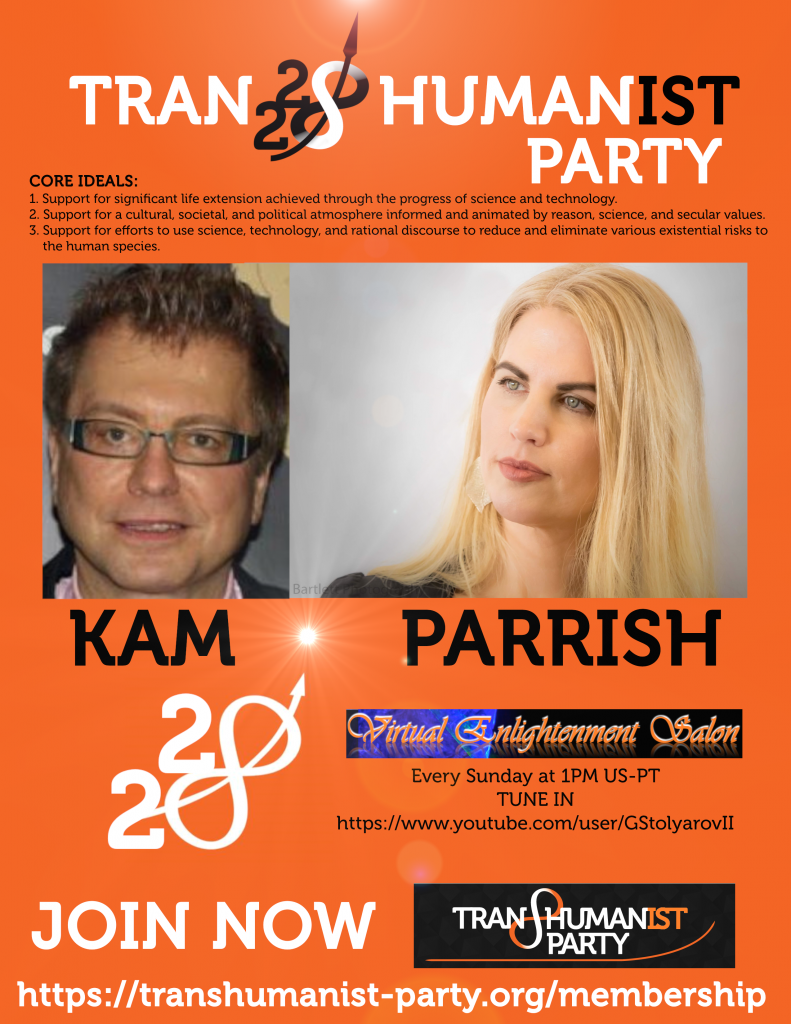
Thus far we are aware of 51 write-in votes having been cast for Charlie Kam and Liz Parrish. Preliminary member-reported totals are found here and will be updated as additional information is received, including when any state which counts write-in votes publishes its results. We are pleased by the dedication of our members who chose to vote their consciences in the states that allowed write-ins, and who moreover proactively reported those votes to us per our request. Anyone who still has not done so can contact us at ustranshumanistparty@protonmail.com in order to be counted as having voted for Charlie Kam and Liz Parrish. We want every write-in vote for our candidates to be recognized!
Considering the turn of events that led Charlie Kam to become our candidate in June 2020, at quite a late stage in the election season, the U.S. Transhumanist Party appreciates what has been achieved in the subsequent 4.5 months. Despite the detailed ballot-access plan that the USTP developed internally in January 2020, the ravages and risks of the COVID-19 pandemic made any petitioning for ballot access and in-person campaigning impractical (we are life-extensionists, after all, and preservation of healthy longevity is our foremost priority). Notwithstanding this pandemic-imposed constraint, both Charlie Kam and his Vice-Presidential running mate, Liz Parrish, served as outstanding ambassadors for the USTP and were indeed our best candidates yet. In the course of many external interviews as well as appearances at the U.S. Transhumanist Party’s weekly Virtual Enlightenment Salons, Charlie Kam and Liz Parrish illustrated a new approach to politics – one based on substantive discussion of issues and policies, a focus on the need for technological innovation to improve the lives of all, and an appeal to the aspirations that unite us rather than the mainstream politicians’ focus on division. As we have emphasized time and again, the primary purpose of Transhumanist campaigns at this stage of our evolution is one of educating the public about the ideas and goals of transhumanism. In this regard, the Kam-Parrish 2020 campaign succeeded, and I am proud to have contributed my time and support to its activities. Charlie Kam and Liz Parrish will remain prominent and eloquent ambassadors for the USTP, and we hope that our future candidates will be able to live up to the examples that they set of high-mindedness, civility, integrity, techno-optimism, and dedication to longevity advocacy.
For a wonderful illustration of the tone of the Kam-Parrish 2020 campaign and the hopeful outlook with which it concluded, watch the final joint interview of Charlie Kam, Liz Parrish, and myself by our ally in Malaysia, Sharif Uddin Ahmed Rana of the World Talent Economy Forum, conducted on November 2, 2020, the day before the U.S. general election.
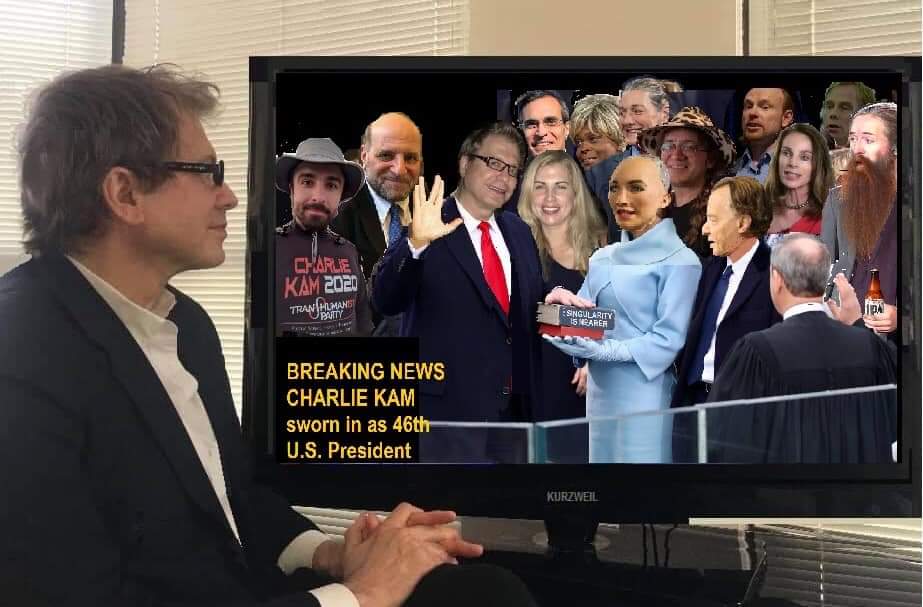
Local Campaigns
Daniel Twedt – City Council, Thousand Oaks, California
U.S. Transhumanist Party member Dan Twedt ran for City Council in Thousand Oaks, California, and gained 3,437 votes, or 3% of the total. During his campaign, he spread awareness of the U.S. Transhumanist Party in local newspapers. An excerpt from the Acorn Newspaper in Thousand Oaks characterized Mr. Twedt as “a member of the Transhumanist Party” with “a platform tied to technology and the environment.” Mr. Twedt was cited as expressing the view that “government needs be way more open-source, way more transparent”. Mr. Twedt plans to run again in 2022, and we encourage his continued activities within the USTP, such as his regular participation in our weekly Virtual Enlightenment Salons, and his public outreach when campaigning.
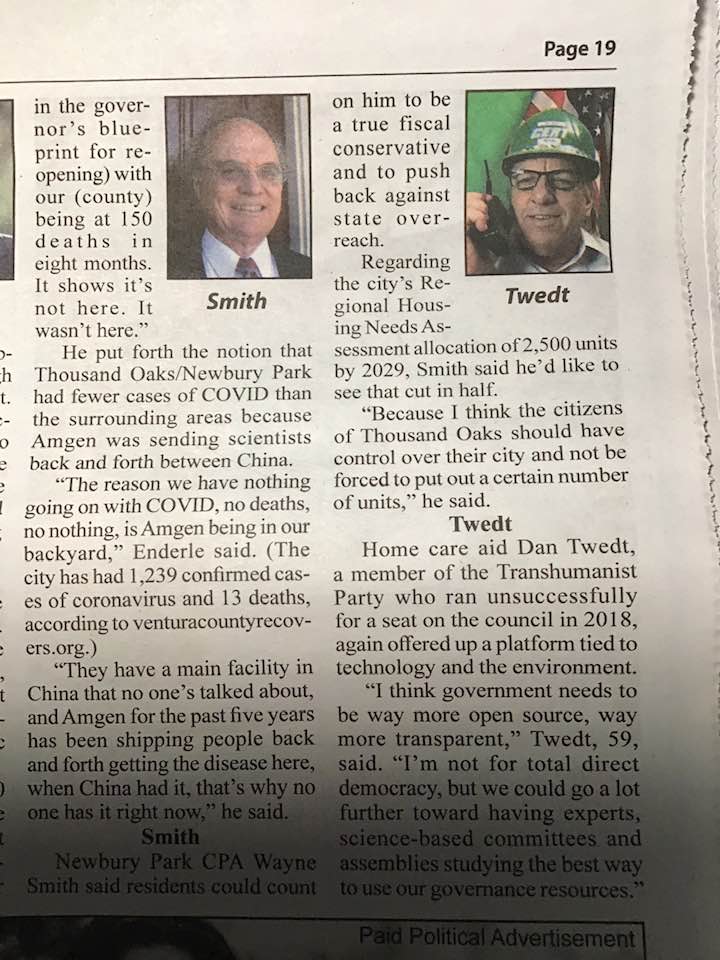
Gennady Stolyarov II – Board of Trustees, Indian Hills General Improvement District, Douglas County, Nevada

My second attempt to run for the Board of Trustees of the Indian Hills General Improvement District was unfortunately thwarted by the occurrence of a primary in June 2020, in the midst of a pandemic. Because of physical-distancing restrictions as well as general concern for health and safety, I decided to campaign using solely virtual means, including holding a Virtual Town Hall via Zoom on May 9, 2020. Nonetheless, there remains a technological gap in the area, and it appears that many residents simply do not get their local news or gain awareness of candidates and issues via electronic means. Moreover, a wave of anti-development sentiment has unfortunately swept Douglas County, resulting in the election of three anti-growth Republican County Commissioners who have vowed to put limits on new construction and residential housing in the name of “keeping Douglas County rural” – which essentially means keeping it unaffordable for those who did not purchase homes there a long time ago. Perhaps these sentiments also translated into voters’ choices for the Board of Trustees of the General Improvement District, and my open and unabashed advocacy of more residential development and more technological utilization certainly clashed with this reactionary mentality. However, I will never apologize for standing on principle and supporting progress in material standards of living, even if it clashes with some people’s attempts to freeze a particular status quo in place. I also remain hopeful that ongoing new construction in the area will continue and help reduce the cost of housing and improve the quality of the infrastructure despite the anti-development partisans’ objections.
The presence of five candidates on the ballot triggered the primary, and one of the candidates who advanced finished with only 17 votes ahead of me (270 votes to my 253). Subsequently, that candidate indicated that he would not accept the office of Board Member if he were elected, effectively leaving three candidates to compete in the general election. This turn of events underscores the importance of candidates being committed to the responsibilities involved in the offices for which they run. Candidates should run only if they are determined to follow through all the way and carry out the duties of the office if they are elected to it. Had the aforementioned candidate decided against running for office to begin with, given his uncertainty about accepting it, then there would not have been a primary, and I would have had about 4.5 additional months to campaign and communicate a rational, transpartisan, and future-friendly approach to the residents. Still, receiving 253 votes out of 1216 ballots cast during a low-turnout primary means that I have successfully reached 20.8% or more than one-fifth of the voting residents. The challenge for future campaigns will be to determine by what channels information spreads in these local elections. There had not been any significant media coverage of the other candidates, and extremely little information was discoverable about them online prior to the primary. Therefore, how were they able to gain recognition and votes during a pandemic in which physical distancing was mandated for the vast majority of the campaign season? Discovering how information can effectively propagate through “offline” channels may lead to insights regarding how more generally to communicate awareness of transhumanist ideas to the broader public.
Ballot Initiatives in Nevada and California – Outcomes as Compared to USTP Recommendations
In Nevada, the recommendations of the USTP and Nevada Transhumanist Party (NTP) prevailed among voters on Ballot Question 2, the Marriage Regardless of Gender Amendment, which passed with a vote of 62.4% in favor, and Ballot Question 3, the State Board of Pardons Commissioners Amendment, which passed with a vote of 61.2% in favor. However, Nevada voters also chose to adopt the two ballot questions that were opposed by the USTP and NTP – Ballot Question 4 (64.1% of voters in favor), which would enshrine in the Nevada Constitution a list of voter rights based on the current, soon-to-be-obsolete paper-based voting system, and Ballot Question 5 – the Renewable Energy Standards Initiative (57.9% of voters in favor). Although the USTP and NTP hope that more than 50 percent of energy sold to consumers could indeed come from renewable sources by 2030, the USTP and NTP wish for this to be achieved through voluntary methods of technical progress and increasing affordability of renewable energy, not through mandates that (if they supersede the pace of technological advancement) would simply raise energy costs for ordinary consumers. Still, the USTP and NTP do not consider the passage of Ballot Questions 4 and 5 to be significant obstacles to the progress of transhumanism and emerging technologies as such; we would have preferred different outcomes, but our efforts will not be materially affected by the results of these votes.
In California, the outcome of the ballot propositions was even more aligned with the USTP’s recommendations, illustrating that on many issues, the USTP has tapped into the outlooks and priorities of many voters who do not strictly adhere to partisan ideologies. On eight out of ten or 80% of ballot propositions on which the USTP made a recommendation in a particular direction, the majority of California voters also favored that course of action.
California Proposition 14 – Stem Cell Research Institute Bond Initiative
USTP Position: Support
Outcome: Passed with 51.09% in favor
The passage of California Proposition 14 is perhaps the most significant victory for transhumanists, as it makes available $5.5 billion in new funds for potentially life-saving stem-cell research initiatives.
California Proposition 15 – Tax on Commercial and Industrial Properties for Education and Local Government Funding Initiative
USTP Position: Oppose
Outcome: Failed with 51.97% in opposition
Most California voters agreed with the USTP on the undesirability of further increases of property taxes – one of the least equitable and least convenient forms of taxation.
California Proposition 16 – Repeal Proposition 209 Affirmative Action Amendment
USTP Position: Oppose
Outcome: Failed with 57.19% in opposition
Most California voters agreed with the USTP that the imposition of racial preferences in public employment and education is inherently unjust and anathema to a society that values individual rights and individual attributes of character over people’s circumstances of birth.
California Proposition 17 – Voting Rights Restoration for Persons on Parole Amendment
USTP Position: Support
Outcome: Passed with 58.57% in favor
Most California voters agreed with the USTP that there is no reason to deprive the essential right to vote from individuals who have completed their prison sentences.
California Proposition 18 – Primary Voting for 17-Year-Olds Amendment
USTP Position: Support
Outcome: Failed with 56.01% in opposition
This was an issue on which the majority of California voters differed from the USTP’s recommendations. Perhaps the attitudinal climate has not yet matured to the point of accepting that a person’s individual understanding of the political system and the issues involved should be the determinant of eligibility to vote – rather than an arbitrary dividing line such as that of age. However, there will be opportunities to continue articulating these principles in the years to come.
California Proposition 20 – Criminal Sentencing, Parole, and DNA Collection Initiative
USTP Position: Oppose
Outcome: Failed with 61.73% in opposition
Most California voters agreed with the USTP regarding the undesirability of measures that would significantly increase the population in prison for relatively minor criminal offenses, such as petty thefts and various nonviolent crimes. Such crimes are better addressed through restitution than through imprisonment.
California Proposition 21 – Local Rent Control Initiative
USTP Position: Oppose
Outcome: Failed with 59.84% in opposition
Most California voters agreed with the USTP in rejecting rent control. In the absence of new construction, rent control creates undesirable incentives that harm tenants of rent-controlled buildings directly and indirectly. Everyone should hope that California will instead loosen the many onerous restrictions on new housing development, which have contributed to a dire shortage of available housing and an essentially complete lack of housing affordability in that state.
California Proposition 22 – App-Based Drivers as Contractors and Labor Policies Initiative
USTP Position: Support
Outcome: Passed with 58.59% in favor
The USTP is relieved that most California voters supported saving the ridesharing business model on transportation network companies by rejecting the presumptive classification of their drivers as employees – a classification that the drivers themselves would find onerous and restrictive. As the USTP stated in its analysis, “It is clear that classifying ridesharing services’ drivers as employees is intended as protectionism for legacy taxicab companies, whose business model has often resulted in sub-optimal treatment of consumers and thus led to widespread consumer frustration. On the other hand, most consumers have expressed overwhelming satisfaction with ridesharing services. California Ballot Proposition 22 restores the more reasonable classification of ridesharing services’ drivers as independent contractors while affording them basic protections regarding their earnings, healthcare, and vehicle insurance.”
California Proposition 23 – Dialysis Clinic Requirements Initiative
USTP Position: Oppose
Outcome: Failed with 63.45% in opposition
Most California voters agreed with the USTP in opposing the requirement for at least one licensed physician be on site during treatment at outpatient kidney dialysis clinics. Voters recognized that, because of the dire shortage of available physicians, especially during the COVID-19 pandemic, this requirement would mean that many dialysis clinics would be unable to operate or offer life-serving services to patients who require dialysis.
California Proposition 25 – Replace Cash Bail with Risk Assessments Referendum
USTP Position: Support
Outcome: Failed with 56.40% in opposition
This was another issue on which the majority of California voters differed from the USTP recommendation. The failure of Ballot Proposition 25 likely means that California will keep its previous system of cash bail instead of abolishing the requirement of cash bail and replacing it with a system of risk assessments for each accused individual. Per the USTP’s position statement, “A person who goes to trial and is exonerated for the alleged offense should not be made any poorer as a result, yet the system of cash bail channels many people in already precarious financial situations into arrangements which lead exactly to such impoverishment.” Unfortunately, it appears that the cash bail system will still persist in California for some time. Nonetheless, this situation is not expected to pose a material obstacle to the attainment of the vast majority of transhumanist goals.
Future Initiatives
With the 2020 election behind us, the U.S. Transhumanist Party’s focus will be on effectively scaling up its operations, maintaining broad unity of purpose and constructive conduct within the transhumanist movement, and participating in wider public discourse on the issues where science and technology can positively affect outcomes.
Working Groups: The USTP is beginning to set up small, focused, project-oriented working groups, each of which will produce a particular set of deliverables – be it a white paper on a policy topic, a computer game on life extension, a survey of members, upgrades to the USTP’s voting system, new graphical assets, or a variety of other possibilities. Some working groups may have an ongoing role, such as providing responses to current events or emerging issues within the transhumanist community. In particular, it will be important to form a working group on legislative tracking and advocacy in order to be able to effectively monitor and respond to proposed legislation at both state and federal levels. Volunteers for future working groups will be welcomed and actively solicited, as long as they exhibit integrity and sincerity of intention.
Member Education and Tiered Membership: The USTP continues to seek ways to reward its most dedicated and knowledgeable members, who should have a stronger influence over the outcomes of our votes. Membership of a more prestigious tier could be the result of passing a future set of online learning units on the USTP Platform, Transhumanist Bill of Rights, and other key documents.
Candidate Education and Eligibility Criteria: The USTP will endeavor to enhance the respectability and transhumanist alignment of the candidates who seek its endorsement by creating more extensive upfront candidate eligibility criteria which will focus on respectability of conduct, a history of dedication to transhumanist ideas, and a spirit of ambassadorship from the candidates, instead of ulterior non-transhumanist motives or personal political ambition. Candidates should be willing to use their pre-existing personal merits and position to promote the ideas of transhumanism, rather than seeing the USTP as a vessel for any alternative, non-transhumanist agenda or personal motive.
Candidates for Non-Presidential Offices: The USTP continues to seek out promising candidates for local and state-level offices and has already identified several promising individuals who may be able to effectively promote the ideas of transhumanism during the next midterm elections in 2022 or possibly even earlier. One question that the USTP will place before its members for consideration is the matter of whether or not affiliations with other political parties should restrict the USTP from endorsing a particular candidate if that candidate explicitly expresses support for transhumanism and/or life extension. The USTP welcomes diverse member perspectives regarding where the boundary should be drawn so that we preserve our distinctive organizational identity while recognizing any techno-positive efforts that advance our vision in the U.S. political arena.
Focus on Ballot Initiatives: One of the USTP’s great strengths is the analytical talent present within it. Almost every state places several questions on the ballot for voters to decide upon directly. The impact of these ballot initiatives is often more significant and more accurately foreseeable than the outcomes arising from the identity of a given elected official. If the USTP can provide recommendations on every ballot initiative in a given election, this will greatly enhance its credibility as a source of reliable policy analysis for large numbers of people. Many of our views are already aligned with large populations of independent voters; they just have to discover us and have ample content from the USTP that they could rely upon in regard to policy questions of interest to them.
Ballot-Access Collaboration with Other Political Parties: Lowering barriers to entry in elections at every level is a common aim shared by the USTP and other political parties with the exception of the Democrats and Republicans. As evidenced by our highly constructive Virtual Enlightenment Salon with Spike Cohen on September 13, 2020, there is an opportunity for concerted efforts among representatives of multiple political parties to assist one another in advocating for greatly lowered ballot-access thresholds and perhaps even coordinate the circulation of petitions once the present pandemic is behind us.
Anti-Troll Campaign: The USTP has not forgotten the importance of effectively responding to trolls and detractors within the transhumanist community who inflict a greater toll upon it than any external critic or adversary. We encourage our members to contribute resources to the anti-troll campaigns, such as tasteful images that can be posted to counter comments and crude “memes” that trolls sometimes deploy. Be both creative and dignified! It is possible to do so and also to amuse and entertain well-intentioned audiences. Show that we can be better than the trolls even in their media of choice!

The above-listed areas are not exhaustive of the endeavors that the USTP intends to pursue. Indeed, our Virtual Enlightenment Salon this coming Sunday, November 29, 2020, will be the Public Session of our U.S. Transhumanist Party Reform Summit, where additional ideas will be both presented to and solicited from our members.
Conclusion
As I have often expressed this year, the future can be bright indeed, if only we can overcome the extreme predicament of the present. No set of ideas prevails automatically or inexorably. The key to success is perseverance, even and especially in the face of adversity and doubt from some. Those who waver and continually change course will never reach any particular desirable destination. While this pandemic has been a strenuous period for all – including perhaps the majority of us in the transhumanist movement – it has only fortified my determination to make the U.S. Transhumanist Party a lasting and ever-expanding success. Since becoming Chairman of the USTP more than four years ago, I have come to recognize clearly the indispensability of this organization to the advancement of transhumanism more broadly, as the USTP has become the nexus of conversations, collaborations, and meetings of great minds who might otherwise never have come into contact. Moreover, the USTP openly and proudly embraces transhumanism without downplaying it or giving lip service to techno-pessimist criticisms. Of course, the success of the transhumanist vision is crucial to the success of humanity as a whole – making a key difference in which path our species takes. Do we reach toward the stars, toward indefinite longevity, toward sustainable superabundance – or do we allow the cascade of present crises to plunge us into the abyss of a new Dark Age? These are outcomes over which we can have control, and the locus of control begins with the transhumanist movement itself. This year more than ever, I urge unity and steadfastness of purpose. Do not allow petty personality conflicts, lack of self-control, and factionalism derail potentially the most pivotal ideas, aspirations, and projects in human history. Support the people who build and uplift, rather than those who destroy and tear down. All those who earnestly seek to advance the well-being of humans through the progress of science and technology – and who are willing to behave civilly while doing so – are welcome to contribute to the endeavors of the U.S. Transhumanist Party and help take our organization to the next level.

